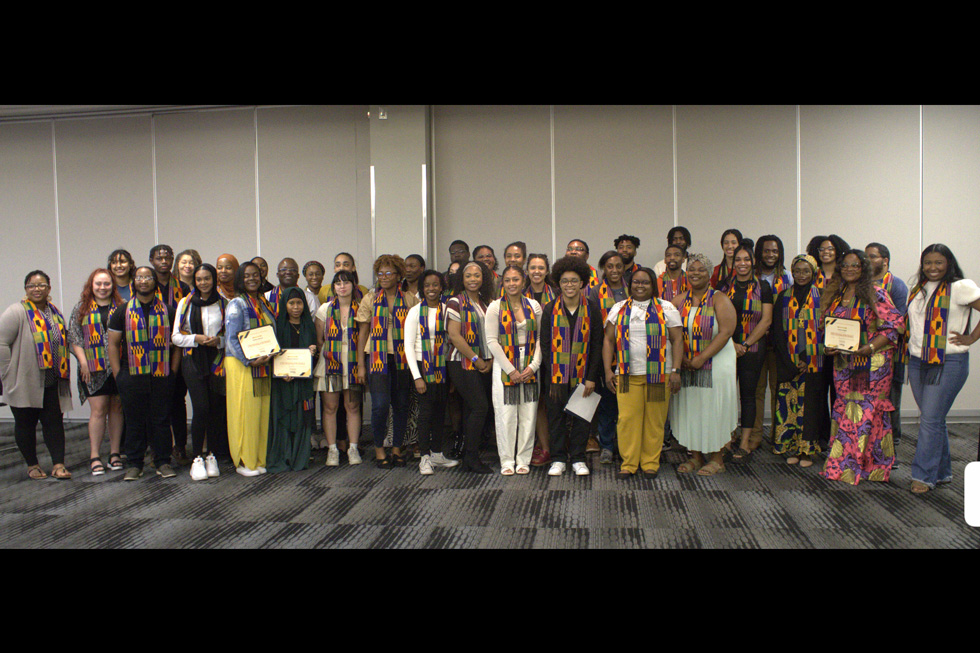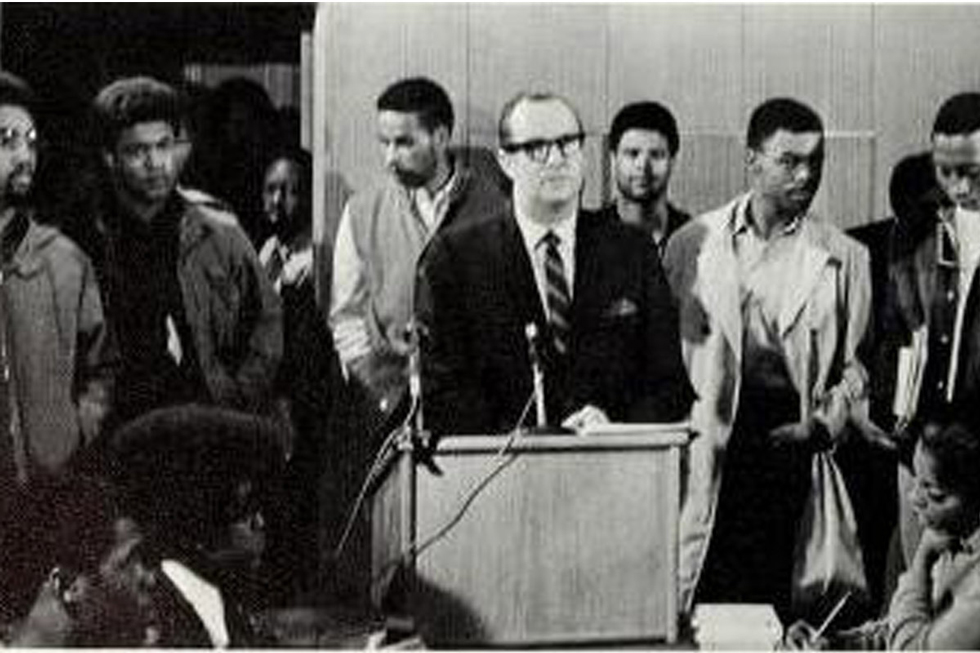Black Studies
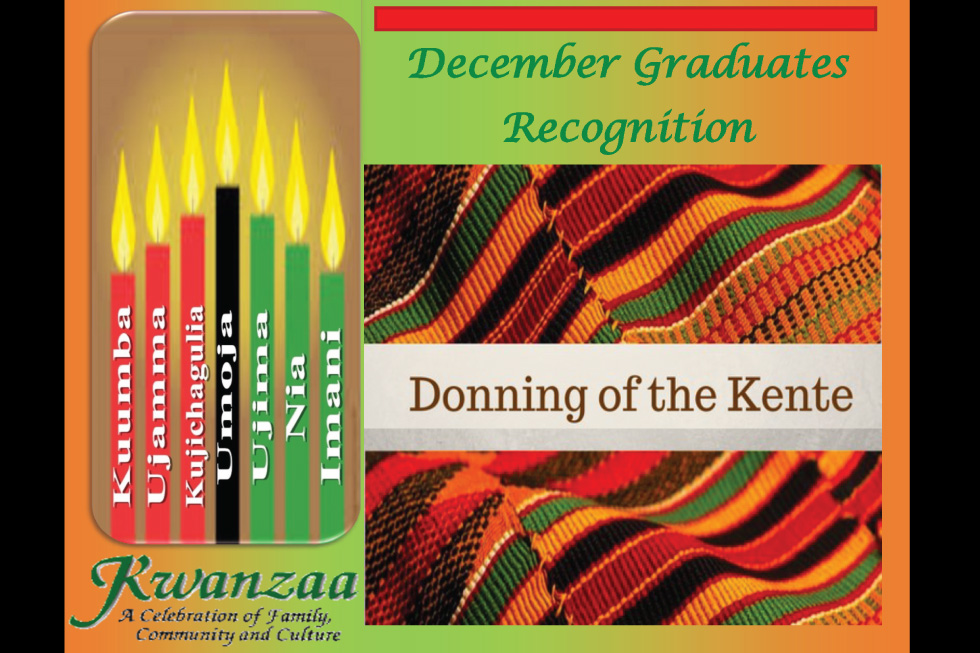
Join us on Dec. 12 from 11 A.M. to 1 P.M. for a Kwanzaa Celebration and Donning of the Kente in the MBSC Ballroom. To RSVP, please contact the Department of Black Studies at 402.554.2412.
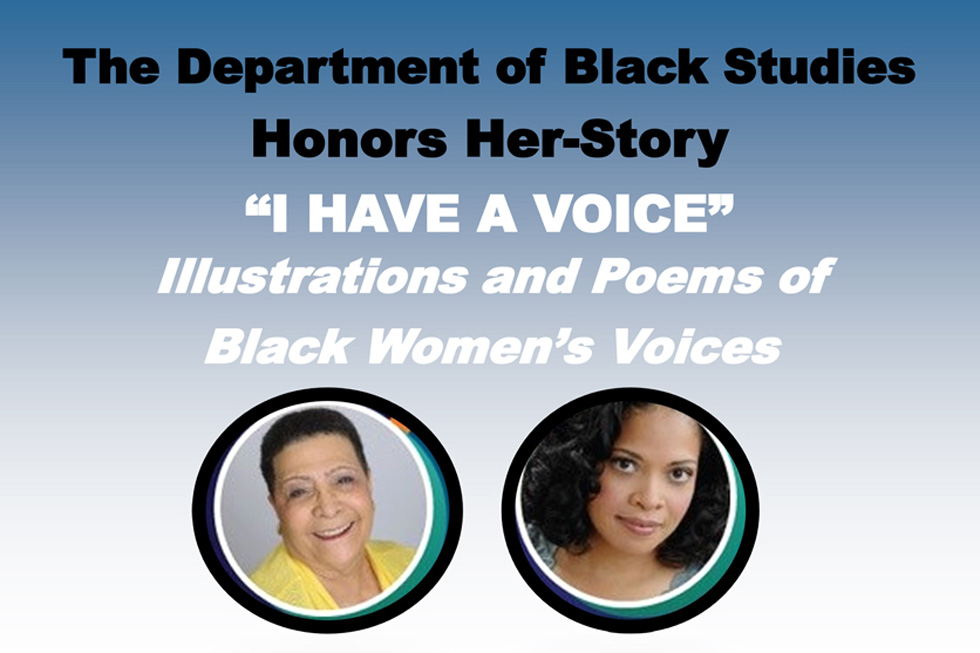
Watch the recording of "I Have a Voice" featuring illustrations by Clarissa Love presented alongside poems by Shawn Love-Bradley.
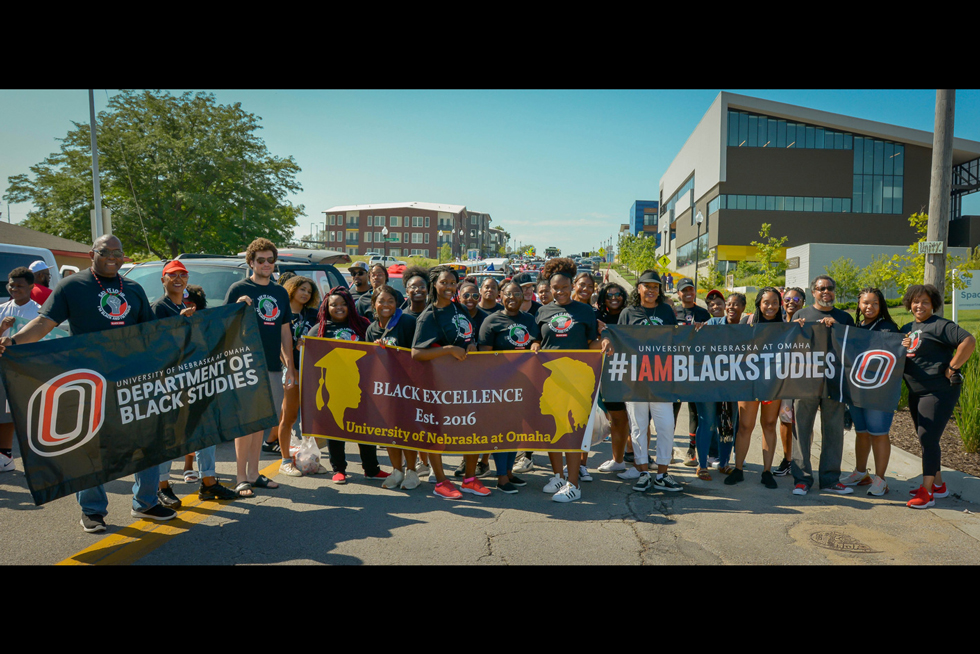
Find all upcoming events and recordings of past events celebrating the 50th Anniversary of the Department of Black Studies on the "Charting Our Path" site.
"For Africa to me ... is more than a glamorous fact. It is a historical truth. No man can know where he is going unless he knows exactly where he has been and exactly how he arrived at his present place." - Maya Angelou
Hello UNO students, faculty, and staff!
Welcome back and welcome to a new, exciting year of instruction. This year marks the Department of Black Studies 50th Anniversary, and we will be celebrating with a full year of events that will deepen our understanding and appreciation of the global African world. Stay tuned for upcoming announcements and join us as we celebrate 50 years of Black Studies at UNO!
Have an academically excellent school year!
Black Studies is the interdisciplinary study of the history, culture, and politics of Black Americans.
Our department consists of scholars and intellectuals who focus their teaching, research, and service on the analysis, critique, and discussion of African continental and diasporic experiences and the systems of oppression and resistance that characterize those experiences, commonly referred to under the rubric of “blackness.” As Africa is the home of humanity and of civilization and society, we believe the knowledge of these is central to the understanding of the whole of human experience. Moreover, the resonant theme of resistance to oppression, spiritual optimism, and social movement organization characteristic throughout the African experience is instructive to all who are interested in social change and cross-cultural communication and tolerance.
We stand at the epoch of a new resurgent African continent with some of the world’s fastest growing economies and most revolutionary political growth, and a diaspora confronted all of the complexities of cultural identity and hybridity in the modern, interdependent world.
We stand also at the precipice of a newly revitalized discipline of Black Studies ready to engage multidisciplinary and cross disciplinary perspectives. Here at UNO, our faculty bring expertise across a wide variety of subject areas including:
- Anthropology
- Art and Art History
- Communication
- Demography
- Education
- History (African and Diasporic)
- Law
- Literature
- Music
- Psychology
- Religion
- Sociology
- Theology
- Women's and Gender Studies
We invite you to join us and become part of this great adventure. The Department of Black Studies., UNO. The only thing missing is …YOU!
